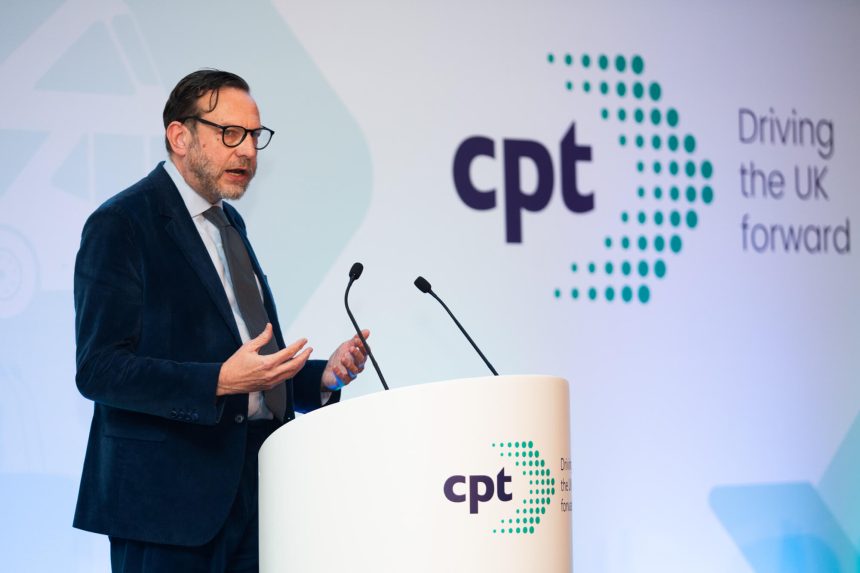The bus sector faces a challenge in securing sufficient funds for growth in future years, with private investment likely to have to play a significant role, delegates at the Confederation of Passenger Transport Conference on 23 January in London heard.
David Leeder, Transport Investment Limited Director, issued the warning during his “Kickstarting Economic Growth” segment.
The former FirstGroup UK Bus Division Managing Director believes previously popular ways of funding public transport, such as via private finance initiative (PFI), could make a successful comeback.
Speaking of Chancellor Rachel Reeves’ assessment of the public purse this year, Mr Leeder says: “The comprehensive spending review will be very important because the government will not be able, in my view, to achieve its objectives solely with public money. It needs private investment.”
Amid a look at financing models of local authority transport plans from the 20th century, he adds: “A whole lot of new things that we did in the past are potentially back again… I would be amazed if, after the comprehensive spending review, we don’t see public-private partnerships again.
“One of my more interesting tasks in life was building the Midland Metro. The way this was done was typically to use what we now call PFI. Bristol Tramways — that was funded, like maybe about half of tramways in the 1900s, by private capital.
“You simply can’t say to somebody: ‘I want you to build an enormous tram system, which in modern money is billions, and by the way – we’re having an election next Tuesday afternoon and we might take it off you or change our minds.
“The answer is you’ve got to have some kind of structure which commits funding or at least gives you rights over a long period of time. If the government does bring back PFI or something that looks like it, that would help.”
He adds: “The economic situation is gloomy, but I think that illustrates why we need to spend money wisely and why private finance is still needed. We can do a lot of things to help the government deliver its objectives. If we can grow patronage, we can reduce the funding burden and deliver on the nonfinancial objectives that the government has set.”
The former First Group UK Bus Division Managing Director believes previously popular ways of funding public transport, such as private finance initiative (PFI), could make a successful comeback.
Speaking of the Chancellor’s planned assessment of the public purse this year, Mr Leeder says: “The comprehensive spending review will be very important because the government will not be able, in my view, to achieve its objectives solely with public money. They need private investment.”
Amid a look at financing models of local authority transport plans from the 20th century, he adds: “A whole lot of new things that we did in the past are potentially back again… I would be amazed if, after the comprehensive spending review, we don’t see public-private partnerships again…
“One of my more interesting tasks in life was building the Midland Metro. The way this was done was typically to use what we now call PFI. Bristol Tramways — that was funded, like maybe about half of tramways in the 1900s, by private capital and you simply can’t say to somebody, ‘I want you to build an enormous tram system, which in modern money is billions and, by the way, we’re having an election next Tuesday afternoon and we might take it off you or change our minds.’
“The answer is you’ve got to have some kind of structure which commits funding or at least gives you rights over a long period of time. I think that, if the government does bring back PFI or something that looks like it, that would help.”
He adds: “The economic situation is gloomy, but I think that illustrates why we need to spend money wisely and why private finance is still needed and we can do a lot of things to help the government deliver its objectives. If we can grow patronage, we can reduce the funding burden and deliver on the nonfinancial objectives that the government has set.”



























